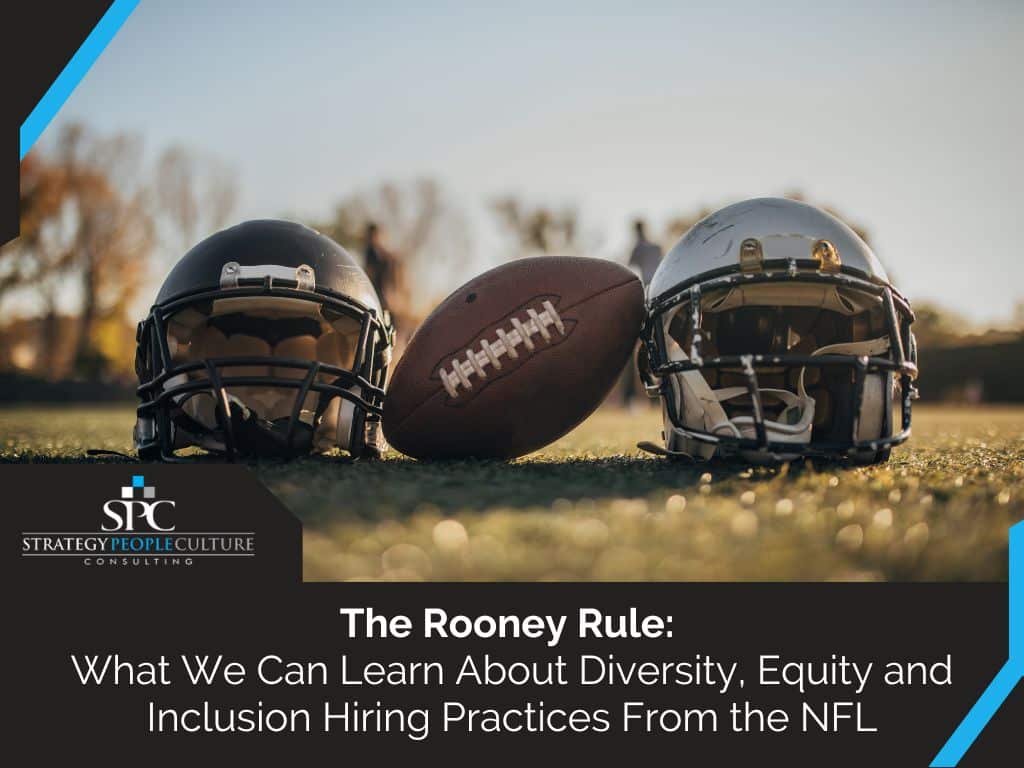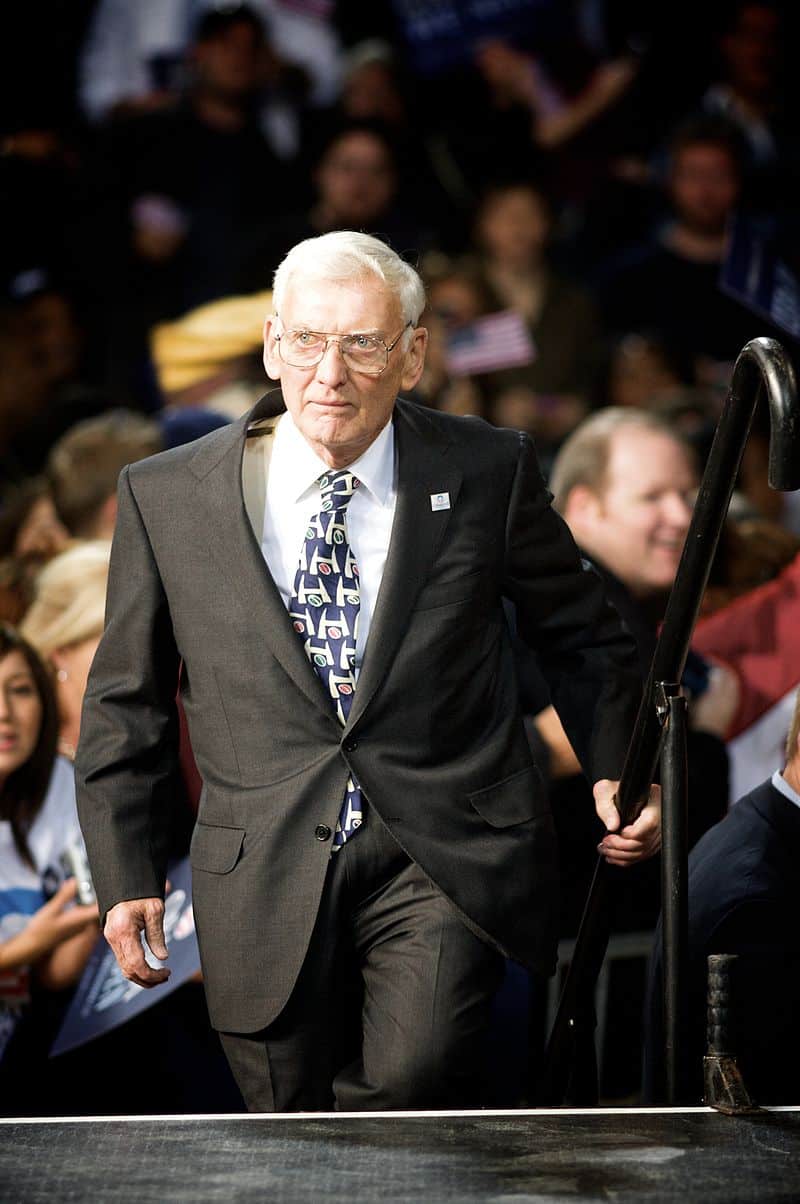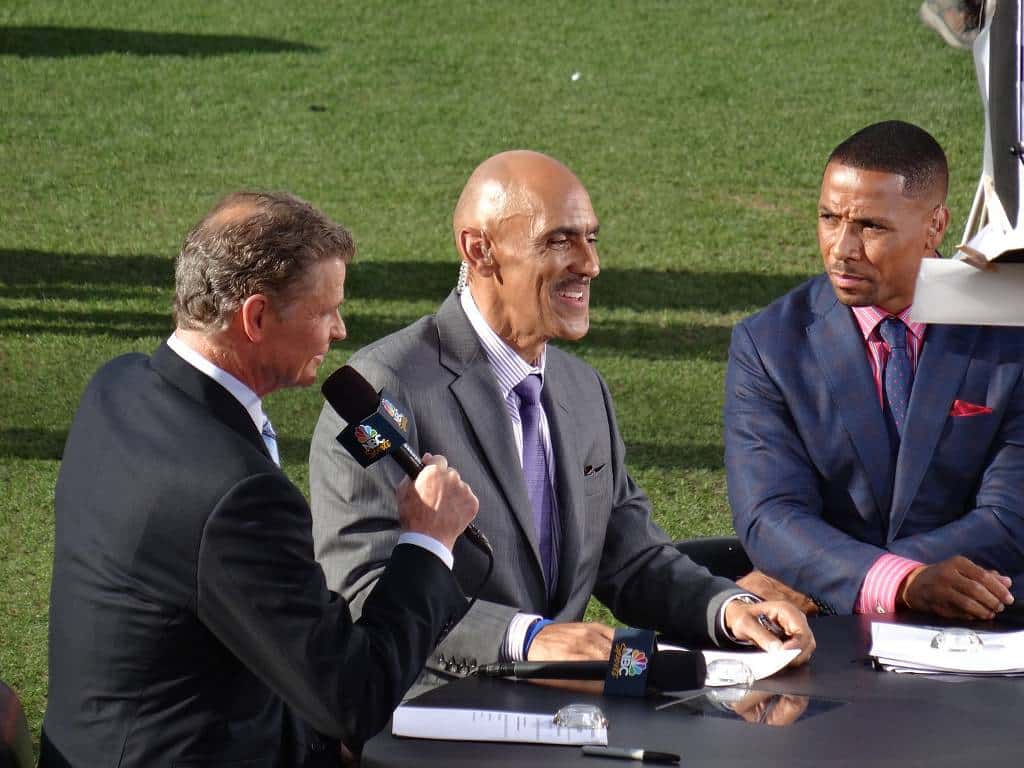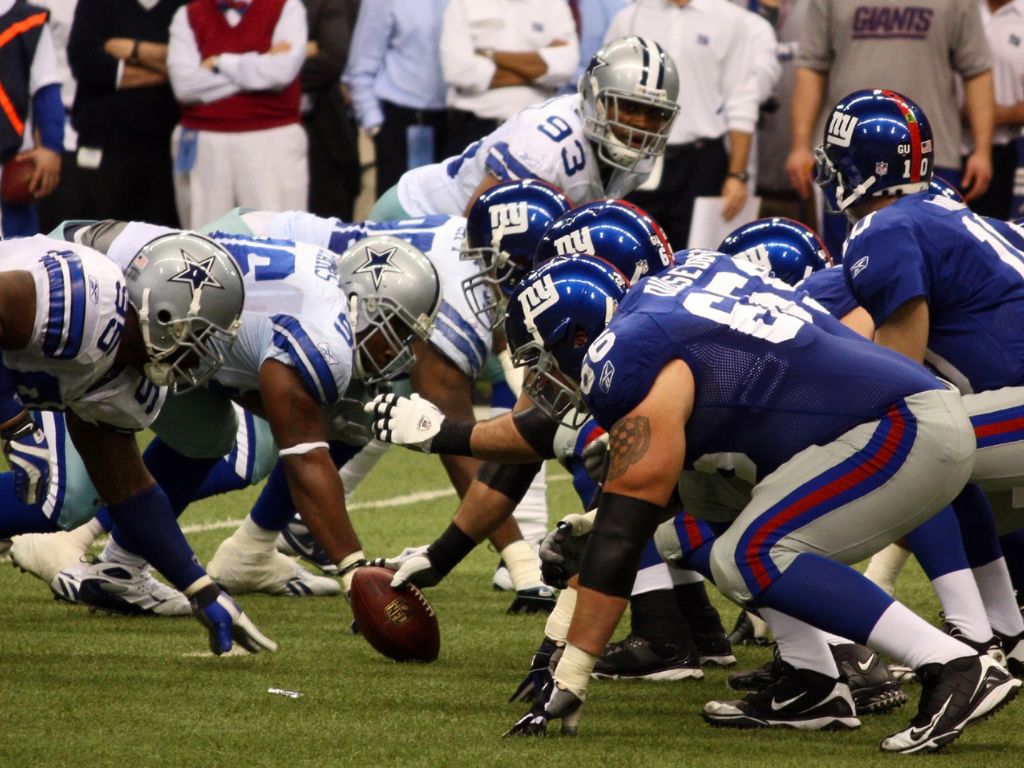The Rooney Rule: What We Can Learn About Diversity, Equity and Inclusion Hiring Practices From the NFL

Many NFL fans know of the Rooney Rule. But whether they are a fan or not, any leader can learn from it. Named for the late owner of the Pittsburgh Steelers, Dan Rooney, it was adopted in 2003 to promote diversity and inclusion in the league’s hiring practices at top-level leadership positions. Yet in almost 20 years, this rule’s effectiveness has been the subject of much debate. In fact, it came under a lot of scrutiny earlier this year when former Miami Dolphins coach Brian Flores was slated to interview for the NY Giants head coach position. (See our related blog article.) And many people point to the fact that currently, there is only one black head coach in the entire league – one less than in 2003 when the rule went into effect.
Why has the Rooney Rule made what seems to be limited progress in diversity among the NFL’s top brass? The answer may be found in the leadership styles of the Rooney family (who still owns the Steelers) versus the leadership of other franchises.

Dan m. Rooney
Who Was Dan Rooney?
Dan Rooney was the son of Art Rooney Sr., the founder of the Pittsburgh Steelers franchise. He was the Steelers’ General Manager, then President, while his father owned the team. Dan eventually became the team’s owner in 1988 after his father’s death, and then officially passed the baton of GM and President to his own son, Art II, in 2002.
Dan’s Leadership Style
Dan Rooney was exactly the type of leader we discussed in our last two blog articles. That is, he was an influencer with the same brand of humility, hard work, and respect for others throughout the ranks that we saw in Dick Vermeil. He was known for doing what he could to connect with his players (aka employees). He would travel with his team to away games and get to know each of them throughout the years, treating them like family. He was humble, authentic, forward-thinking in his decision-making, and believed in setting a good example. His son once said of him, “There are a lot of conversations about empathy in the workplace, and then there are a lot of conversations about winning. What I saw my father do well was blend the two. He was able to really find the balance between setting the highest standards possible and achieving outcomes while also integrating having that respect for everyone who was involved in the process.”
Dan’s Contributions to the NFL
Before his death in 2017, Dan Rooney had widespread influence in the league. He played a huge part in resolving the 1982 players’ strike, architecting the league salary cap rules, and selecting Roger Goodell as League Commissioner. “For a while now, he has been the conscience of the league, somebody who always speaks with the league’s best interest at heart,” Giants co-owner John Mara once said of him.
His most famous contribution, however, was the rule that bears his name, the “Rooney Rule.” He led its development as the chairperson of the NFL’s Workplace Diversity Committee.
What Sparked the NFL’s Rooney Rule and What Does It Say?

Tony dungy is a former professional football player and retired nfl coach
The Rooney Rule was created in response to Tampa’s firing of then Head Coach Tony Dungy, despite a winning record, and Dennis Green of Minnesota, who’d had his first losing season in ten years. The belief was and still is that minority coaches were being held to a higher standard than their white counterparts. Also factoring into the rule’s creation was the imbalance of diversity in the league, where about 70% of the players were minorities, but few in leadership were.
The Rooney Rule requires that when a head coaching vacancy occurs, the team must interview at least one minority candidate for the job. The goal was to diversify the talent pool of candidates to achieve greater diversity overall in NFL leadership. The rule has since expanded to include general manager and other front office/senior management positions; it now requires at least two candidates of color to be interviewed (since studies show this improves the odds of a minority hire), and most recently, including women in the diversity pool of interviewees.
The rule is just one demonstration of Dan Rooney’s commitment to diversity. Before the rule was fully in place, he had already interviewed minority candidates for his coaching staff, and his 2007 head coaching hire, Mike Tomlin, remains one of four black NFL coaches for the 2022-2023 season (and, by the way, also the NFL coach with the most consecutive – 15 – winning seasons).
Where Are the Other NFL Teams?

The Steelers have fulfilled the promise of the Rooney Rule because they have a culture that embraces inclusion at all levels. Other teams have likewise honored the promise of diversity in their leadership. These ten teams account for almost two-thirds of all the minority coaches, and General Managers hired in the league since 1990: the Cleveland Browns, Tampa Bay Buccaneers, the Raiders, Cardinals, Detroit Lions, Indianapolis Colts, Kansas City Chiefs, Miami Dolphins, Minnesota Vikings, and New York Jets.
By contrast, there are 7 NFL teams that, to date, have never had a black head coach or general manager. These are the Atlanta Falcons, Dallas Cowboys, Jacksonville Jaguars, Los Angeles Rams, New England Patriots, New Orleans Saints, and Tennessee Titans. That is, although they have complied with the league’s interviewing policies, they have not met the goal of diversifying their leadership. Whereas you can’t fully know what happens within an organization, the issue may be internal culture. That is, all teams are subject to the same hiring policy. How they execute, though, is a matter of leadership and the culture they set forth.
In other words, having a good Diversity, Equity, and Inclusion (DEI) hiring policy is not enough. It comes down to leadership.
Why a DEI Hiring Policy Is Not Enough

Like all other corporate decisions, a DEI hiring policy will only be adopted and embraced if leadership shows a commitment to it. By “embraced” we mean that managers will not just go through the motions of interviewing candidates. Nor will they hire people only to lose them because of an uncomfortable corporate culture for diverse candidates. As we spoke of in our last blog article, a leader can’t simply demand adherence to the rules. They must influence people to act. Leaders need to believe in the policy’s merit. And they must behave in ways that show the intent of the policy matters. That intent is to create a diverse talent pool that brings a breadth of experience to problem-solving that advances your company’s mission.
Reminders: Why Diversity Among Staff Is Important
Study after study has shown that diversity improves a business’ bottom line. But why is this the case? These studies point to two critical factors: (1) the most innovative solutions to problems are created by teams, not individuals, and (2) the more diverse the experiences of the team members, the more ideas the team has available to tap into to build a creative solution. In other words, a room full of homogenous “yes” people does not get the job done as robustly as a room full of people coming at a problem from different angles.
There’s yet another factor that this Forbes article wisely points out. A growing global economy means having a diverse staff representing your customer base improves your ability to meet customer needs. That gives you a competitive edge over firms in the same space with a less diverse team.
And finally, the results of this survey clearly demonstrate that younger generations simply do not want to work for a company that does not make diversity a priority. Other studies show this preference is particularly true of people with higher talent. Therefore, companies that don’t pay attention to inclusion greatly limit their ability to hire and keep new people with the greatest potential.
What Gets in the Way of Hiring Diversity?
As we’ve discussed before, people have unconscious biases. This Harvard Business Review article defines it as “the mental processes that cause us to act in ways that reinforce stereotypes even when in our conscious mind we would deem that behavior counters to our value system.”
This and related biases we all naturally have to get in the way of hiring candidates who we find dissimilar to ourselves. In fact, this phenomenon is what led to the development of the Rooney Rule. And, at least on the surface, it appears that some NFL leaders still have not been able to combat it fully at top levels. It is possible that they are unaware of their bias issues and have other justifications for their hiring choices. This is where executive coaching may help them see the shortcomings in their leadership by offering an objective lens to their decision-making.
Keeping Your Diverse Staff Is Just as Important
Finally, we need to point out that a DEI hiring policy is insufficient because it does not address employee retention. Your leadership can believe in hiring diversity, but if the culture within the organization is not inclusive, your talent pool may not stay. This can saddle your organization unnecessary costs and wasted time hiring and training talent.
That is, your organization requires a culture of inclusion. Inclusion means having a culture where all feel welcome and can be their authentic self and thrive. To achieve an inclusive workplace culture, it is helpful to objectively look at everyday practices, procedures, and norms to discover if any barriers to inclusion exist. These can be as subtle as microaggressions in everyday conversations to more overt forms of harassment or practices that discriminate against certain groups (like important meetings held on religious holidays, for example).
How We Can Help

Taking an objective look at your organization’s practices can be difficult. For one, it takes time away from its main business objectives. As pointed out before, remaining unbiased about your practices and procedures can also be challenging. This is especially true if you’ve had a hand in creating them!
Strategy People Culture has had years of expertise working with leaders who want to prioritize making themselves and their businesses stronger. Focused on executive leadership coaching, we’ve helped many business leaders develop better skill sets and improve their organizations’ inclusivity.
If you want more information about our services, contact us online today! You can also call 833-ROCK-SPC or email info@strategypeopleculture.com.
